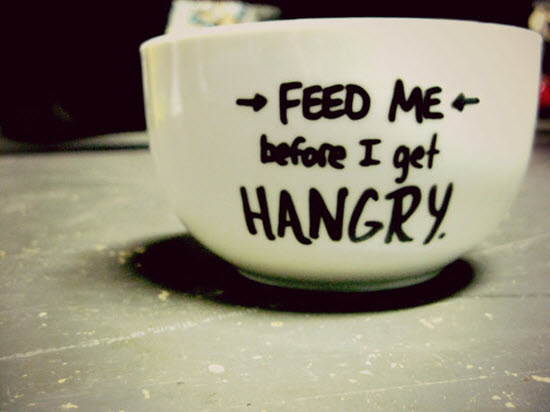
As you may know, moods can affect our appetites and our food selection. People often eat for emotional reasons, based on their moods.
What”™s helpful to know is that the reverse can also be true. What we eat — and when we eat it — can affect our moods, our minds, and our ability to work productively all day, sleep soundly at night, and more.
The foods we eat can cause such low mood states as depression, irritability or anxiety. Diet can also exaggerate our tendency to experience those moods.
Much of that occurs through the action of neurochemicals — chemicals in the brain that transmit information. As you read through this, keep in mind whether your diet may be preventing you from feeling as good as you could.
Do You Feel “Down” After Your Lunch?
If afternoons are tough for you, you might be eating too many starchy or sweet carbs at lunchtime. Some people experience that reaction to carbs more strongly than others.
Protein foods trigger the production of the brain chemicals dopamine and norepinephrine, which will keep you awake, alert and feeling good.
A meal of pasta, on the other hand — either with or without bread — can raise insulin levels significantly. The rise in insulin allows tryptophan, an amino acid, to reach the brain.
Once tryptophan gets to the brain, it”™s used to make serotonin. Serotonin is a brain chemical that makes us feel relaxed and calm. High levels of serotonin, though, can cause lethargy, sleepiness, and, in some people, a “down” or depressed mood.
Vegetables don”™t raise insulin, so they don”™t trigger serotonin and won”™t bring you down. That makes them an excellent lunchtime food if you need to stay focused and positive, and work through the afternoon and early evening.
A good solution might be to eat a high-protein, low-carb lunch, such as chicken and salad — and go easy on the breadsticks, baked potato, or other starchy carbs.
Skipping sugary desserts is another way to keep yourself feeling alert and positive after lunch — or after any meal.
This alternative approach to your mid-day meal should help you stay awake, “even” and productive for the rest of your working day.
Is Your Diet Too Low In Protein?
If your moods tend to be low in general, if you feel sleepy often, or if you have strong cravings for carbs, it”™s possible that your diet is too low in protein.
Protein is made of amino acids. We learned about them in basic biology as the “building blocks” of protein. The amino acid tyrosine is what the brain uses to make two chemicals — norepinephrine and dopamine. Low levels of norepinephrine can lead to depression, and low levels of dopamine can lead to the “blahs.”
Tryptophan, used to make serotonin, is also an amino acid, so it too comes from protein. Studies have shown that diets low in tryptophan can trigger depressive symptoms in susceptible people.
This doesn”™t contradict the first point about how a high-carb lunch can trigger sleepiness or a down mood. Carbs — and specifically the insulin they trigger — are involved in transporting tryptophan to the brain.
But tryptophan itself comes from protein, so we need to eat adequate protein throughout the day to make sure we can make serotonin when we want and need it.
Finally, protein foods contain vitamin B6 (along with other B vitamins). B6 is necessary for the proper production and release of serotonin, dopamine and norepinephrine.
Low levels of those 3 brain chemicals could result in depression or other mood issues. To repeat the suggestion above, make sure to eat lean protein (fish, chicken, shrimp, for example, or even protein powder) with your meals and snacks throughout the day.
[Part 2 will cover more ways foods may affect your moods.]
- New Year’s Resolutions: A Sugar Addict’s Survival Guide - April 15, 2024
- Motivation vs. Enthusiasm - October 12, 2023
- Why Exercise Shouldn’t Be Just One Thing - November 9, 2022
